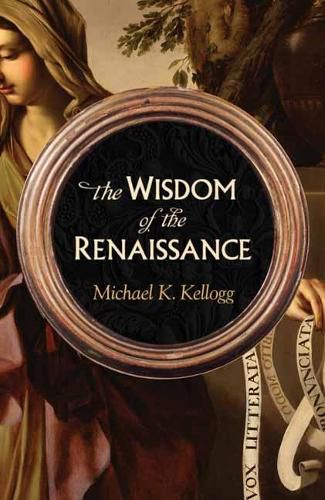Readings Newsletter
Become a Readings Member to make your shopping experience even easier.
Sign in or sign up for free!
You’re not far away from qualifying for FREE standard shipping within Australia
You’ve qualified for FREE standard shipping within Australia
The cart is loading…






This engaging survey of important works spanning the lives of Petrarch (1304-1374) to Shakespeare (1564-1616) reveals the depth of thought and the diversity of expression that characterized the Renaissance. The author examines poetry, philosophical treatises, essays, letters, novels, comedies, and dramas, documenting the unique array of evolving concerns that drove the Renaissance search for wisdom.
Beginning with Petrarch’s rejection of scholasticism and attempt to give new life to classical learning, Kellogg shows how medieval ideas were transformed and transcended at an increasingly rapid pace. Erasmus’s calls for modest reforms led to the Reformation and the Counter-Reformation, which divided and ravaged much of Europe. Machiavelli’s frank pragmatism was countered by the utopian irony of Thomas More. And Castiglione’s ideal courtier perfects the ideal of Renaissance self-fashioning. All of these figures lay the groundwork for the four towering authors with whom the book ends- Rabelais, Montaigne, Cervantes, and Shakespeare, each of whom contributes to a post-Renaissance view of humanity and of personal identity that is the beginning of modernism.
Only two centuries passed between Petrarch and Shakespeare, but they are without doubt the two most transformative centuries in the history of thought.
$9.00 standard shipping within Australia
FREE standard shipping within Australia for orders over $100.00
Express & International shipping calculated at checkout
This engaging survey of important works spanning the lives of Petrarch (1304-1374) to Shakespeare (1564-1616) reveals the depth of thought and the diversity of expression that characterized the Renaissance. The author examines poetry, philosophical treatises, essays, letters, novels, comedies, and dramas, documenting the unique array of evolving concerns that drove the Renaissance search for wisdom.
Beginning with Petrarch’s rejection of scholasticism and attempt to give new life to classical learning, Kellogg shows how medieval ideas were transformed and transcended at an increasingly rapid pace. Erasmus’s calls for modest reforms led to the Reformation and the Counter-Reformation, which divided and ravaged much of Europe. Machiavelli’s frank pragmatism was countered by the utopian irony of Thomas More. And Castiglione’s ideal courtier perfects the ideal of Renaissance self-fashioning. All of these figures lay the groundwork for the four towering authors with whom the book ends- Rabelais, Montaigne, Cervantes, and Shakespeare, each of whom contributes to a post-Renaissance view of humanity and of personal identity that is the beginning of modernism.
Only two centuries passed between Petrarch and Shakespeare, but they are without doubt the two most transformative centuries in the history of thought.